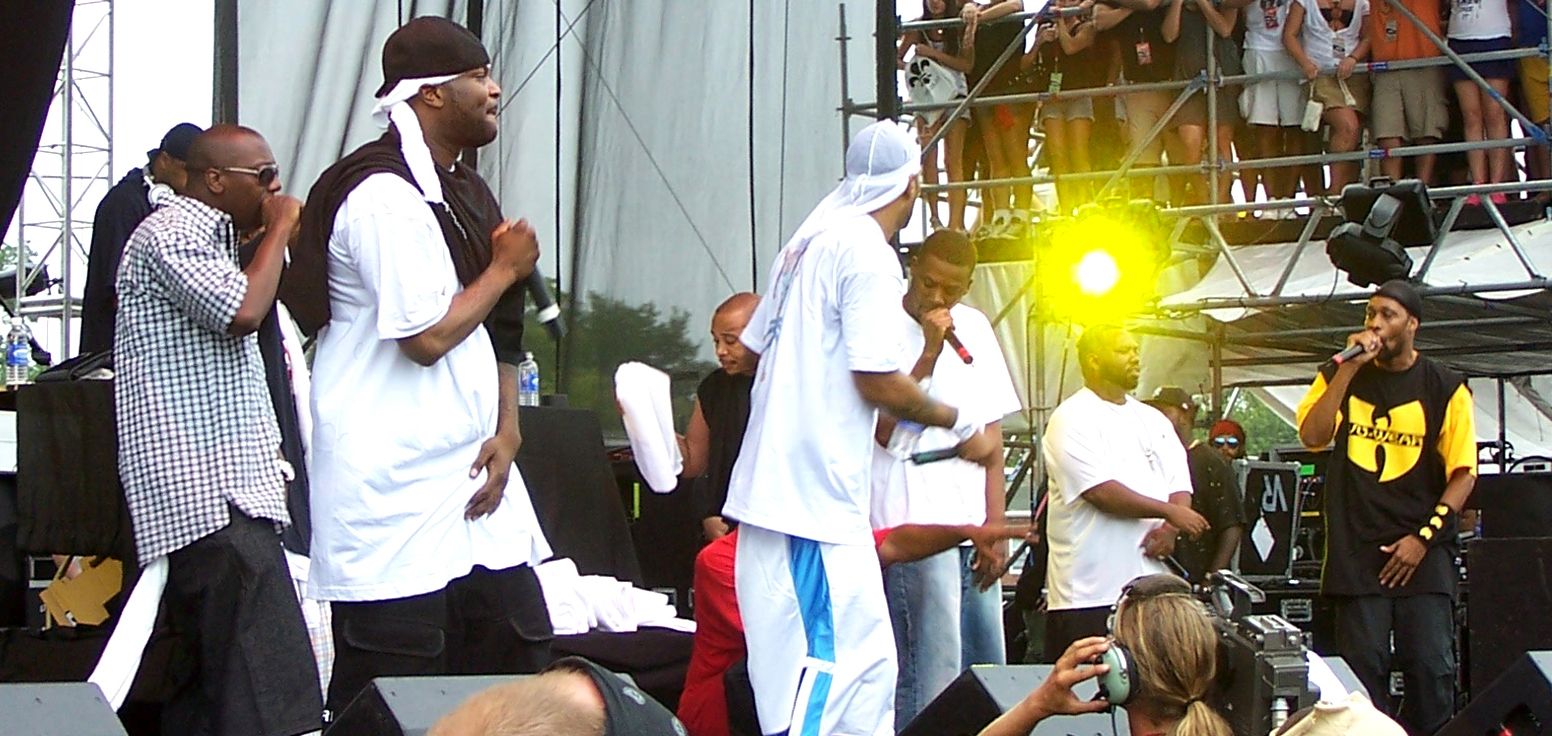In 2018, New York City is going through a bit of a crisis with its hip-hop identity. Perhaps it stems from Tekashi 6ix9ine appointing himself the “King of New York,” or perhaps it’s 50 Cent — clinging to his early-2000’s relevancy — promoting Vitamin Water and Power.
Twenty-five years ago this month, however, New York hip-hop was alive and thriving. On November 9th, 1993, two of the city’s best acts released timeless projects — Wu-Tang Clan with Enter the Wu-Tang (36 Chambers) and A Tribe Called Quest with Midnight Marauders — and their impact is still felt in the rap community.
Wu-Tang Clan: Enter the Wu-Tang (36 Chambers)
Seconds into their debut album, you get a sense for what the Wu-Tang Clan is about. “Bring da Ruckus” (the opening track) begins with a sample from Shaolin vs Wu Tang, a 1983 martial arts movie that inspired the group.
“Do you think your Wu-Tang sword can defeat me?” the sampled voice ominously poses before RZA jumps in with, “Bring da motherfuckin’ ruckus,” in a voice as forceful as being struck by a sword.
At the time of 36 Chambers’ release, Wu-Tang consisted of nine members — RZA (leader and lead producer), GZA, Ol’ Dirty Bastard (O.D.B), Ghostface Killah, Method Man, Raekwon, Inspectah Deck, U-God and Masta Killa. All hail from Staten Island, the least-represented borough in terms of New York City rap music.
The nine members somehow coordinate a project with extreme cohesiveness, something tough to come by in a debut project. 36 Chambers’ production is meticulous — loud boom-bap drums and layered vocals appear on every record.
The album sounds organic and almost as if it was recorded in one take while passing the microphone around the recording studio. When they made the album, Wu-Tang Clan was still an underground group and these elements can be heard throughout.
Wu-Tang Clan went on to become not only one the most famous rap groups of all time, but also a pop-culture staple. The Wu-Tang W logo is as recognizable as the Batman logo it resembles, and RZA and GZA frequently appeared in Chappelle’s Show skits surrounding a fictional accounting firm named “Wu-Tang Financial.”
Best lines:
Inspectah Deck on “Protect ya Neck”: “I smoke on the mic like Smokin’ Joe Fraizer / The hell-raiser, raising hell with the flavor.”
Ghostface Killah on “Bring da Ruckus”: “Ghostface catch the blast of a hype verse / My Glock burst, leave in a hearse, I did worse.”
RZA on “Tearz”: “Check the script, me and the gods getting ripped / Blunts in the dip forty dogs in my lip.”
A Tribe Called Quest: Midnight Marauders
The music industry was very aware of A Tribe Called Quest by the time November 1993 rolled around. The Queens group put out their sophomore album, Low End Theory, in 1991 to resounding critical acclaim and followed it up with Midnight Marauders two years later.
The trio of Q-Tip, Phife Dawg and Ali Shaheed Muhammad helped bring alternative rap music into a mainstream context with Midnight Marauders. Like Wu-Tang, they use the boom-bap sound, but with a bit of a twist. Simple snare drums and DJ scratches accompany the guitars, keyboard and soft horns — the influence that jazz has on the record is apparent. Q-Tip and Shaheed Muhammad sample deep cuts off James Brown, Ronnie Foster and Minnie Riperton albums for the production.
Q-Tip and Phife Dawg handle the rapping on the project, trading verses back and forth as a lyrically-dense tag team. The album has more melody to it than 36 Chambers, allowing the two rappers to distort their inflection to match the tune.
Midnight Marauders provides a pit stop inside the 1990s, though many current listeners weren’t born when it came out. Listening the album on a record player feels like the proper way to enjoy Tribe — white noise murmurs off the vinyl and the song jumps when you nudge the machine.
Best lines:
Phife Dawg on “Electric Relaxation”: “I like them brown, yellow, Puerto Rican, or Haitian / Name is Phife Dawg from the Zulu Nation.”
Q-Tip on “Award Tour”: “See, lyrically I’m Mario Andretti on the MOMO / Ludicrously speedy or infectious with the slow-mo.”
Q-Tip on “Lyrics to Go”: “Silly with the microphone, in other words I’m loco / Six foot zero with my height, complexion cocoa.”
Impact
Both albums received overwhelming support from critics — you can find them on dozens of “Best albums of the 1990s” or “Best rap albums of all time” lists. Released a year before Biggie’s debut album Ready to Die, these projects created a movement, giving New York its sound and influencing the next decade of rappers.
“[A Tribe Called Quest] is one of my biggest inspirations,” Kanye West said on Sway in the Morning. “When I felt like I was at my highest level was when I was closest to a Tribe record.”



